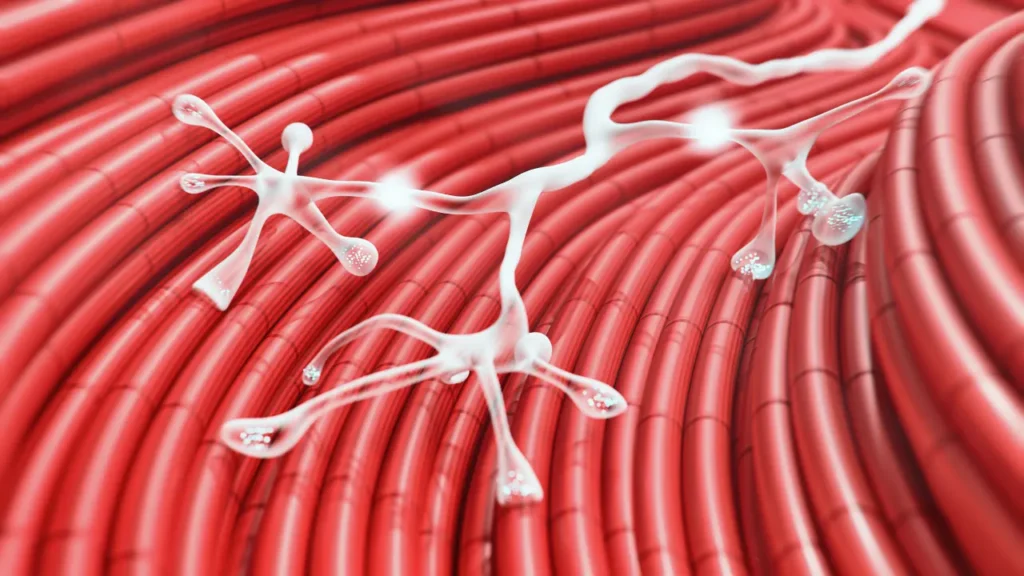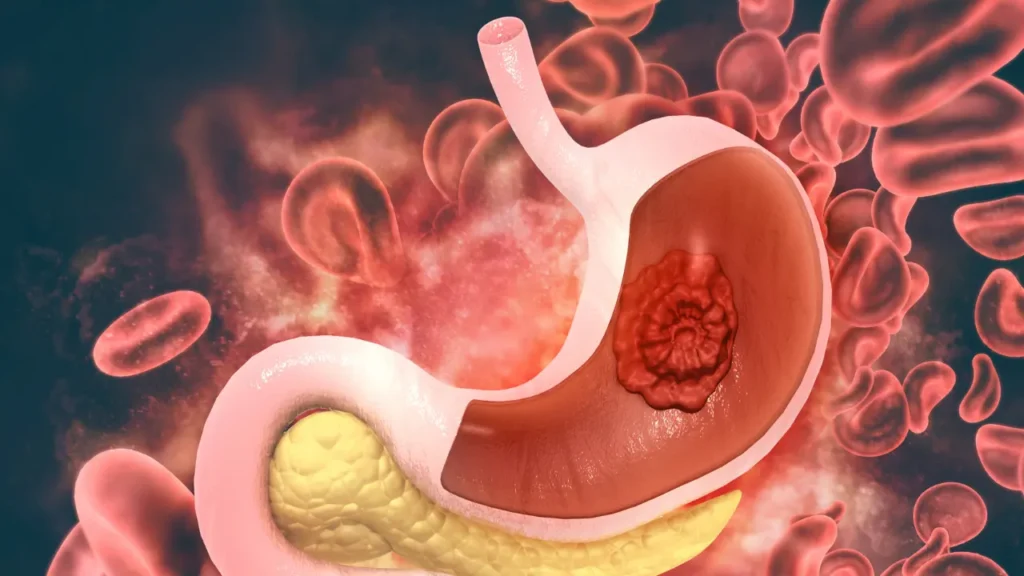Sodium Bicarbonate is sometimes referred to as baking soda. Sodium Bicarbonate is an alkaline, or basic, white crystalline powder with a pH greater than 7. With a sodium ion (Na⁺) bound to a Bicarbonate ion (HCO₃⁻), Sodium Bicarbonate has the chemical formula NaHCO₃. This seemingly straightforward substance has many uses, from cleaning and baking to medical applications. The nootropic community’s interest in Sodium Bicarbonate has risen recently. The chemistry of Sodium Bicarbonate, its physiological effects, possible health advantages, ideal dosages, adverse effects, interactions with other substances, and recommendations for responsible usage as a cognitive enhancer are all covered in this article.
You May Also Like:
Should You Try CBD for Focus? Here Are the Facts.
Diamond CBD Gummies vs. Joy Organics CBD Gummies
Sodium Bicarbonate: Benefits, Dosage, Side Effects, Drug Interactions, and Other Important Information is an original (NootropicsPlanet) article.
Nature of Sodium Bicarbonate
Ocean waters, mineral springs, and the crust of the planet all naturally contain Sodium Bicarbonate. It is created when these liquids evaporate, leaving behind mineral deposits called nahcolite, which is mostly made of Sodium Bicarbonate. The Solvay process, which creates Sodium Bicarbonate and ammonium chloride when sodium chloride (table salt), ammonia, and carbon dioxide react in water, is how it is made industrially.
In terms of chemistry, Sodium Bicarbonate is a Sodium Bicarbonate salt. It becomes more soluble in water with increasing temperature. It is mildly soluble in water. Many of the applications of Sodium Bicarbonate stem from its mildly alkaline solution in water. This alkalinity enables it to neutralize acids, a property that is exploited in its use as an antacid, in baking as a leavening agent, and in various industrial processes.
Health Benefits of Sodium Bicarbonate
Acid Neutralization and Digestive Aid:
One of the most well-documented health benefits of Sodium Bicarbonate is its ability to neutralize stomach acid, making it an effective treatment for heartburn, acid indigestion, and upset stomach. This acid-buffering capacity can also help prevent the formation of kidney stones by making the urine less acidic, thus reducing the risk of stone formation.
Athletic Performance:
Sodium Bicarbonate has been studied by researchers for its potential to enhance physical performance, particularly in high-intensity activities. By buffering lactic acid produced during exercise, it may delay muscle fatigue and enhance endurance. This benefit is especially noted in short-term, high-intensity exercises where the production of lactic acid quickly leads to muscle fatigue and decreased performance.
Renal Health:
For individuals with chronic kidney disease, Sodium Bicarbonate supplementation can help slow the progression of the disease. It works by neutralizing the acid buildup in the body, a common issue in patients with reduced kidney function. This neutralization can help preserve kidney function and improve the overall quality of life for these patients.
Alkalinizing Agent:
The body’s pH balance is crucial for optimal health. An overly acidic body environment can lead to various health issues, including decreased bone density, muscle wasting, and increased risk for chronic diseases. Sodium Bicarbonate can act as an alkalinizing agent, helping to balance the body’s pH. However, it’s important to note that the body’s pH regulation is highly complex, and supplementation should only be considered under medical advice.
Detoxification and Cleaning:
While not a direct health benefit when ingested, the use of Sodium Bicarbonate for cleaning and detoxification purposes can contribute to a healthier living environment. It’s a natural cleaning agent that can remove toxins and allergens from surfaces without the need for harsh chemicals. Additionally, when used in baths, Sodium Bicarbonate can help detoxify the skin and provide a soothing effect.

The Chemistry of Sodium Bicarbonate
Sodium Bicarbonate is a salt at the molecular level that separates into sodium and bicarbonate ions in solution. It can neutralize acids because of its alkaline composition. Many of its applications, both medically and domestically, are fundamentally based on this reaction. Salt, water, and carbon dioxide gas are the products of the reaction between Sodium Bicarbonate and acids. As a result of this reaction, which creates bubbles in the dough, baked items rise. This similar process acts as an effective antacid in the body by neutralizing excess stomach acid and preserving pH homeostasis.
Physiological Mechanism of Action
Sodium Bicarbonate’s physiological effects are mostly brought about by its capacity to buffer acids and control the body’s pH levels. Blood pH is closely regulated by the kidneys and respiratory system to keep it within the specific range required for healthy cell function. During episodes of metabolic acidosis, a condition in which the blood becomes excessively acidic, Sodium Bicarbonate may serve as a temporary buffer for the pH of the blood, possibly helping the body to maintain homeostasis.
Sodium Bicarbonate may have a less obvious mechanism of action when it comes to cognitive enhancement. Sodium Bicarbonate may prevent weariness by buffering the lactic acid created during vigorous physical or mental effort, keeping one alert and focused. Furthermore, the control of pH may have an indirect impact on brain function by altering neuronal activity or neurotransmitter release modification.

Optimal Dosage
The ideal Sodium Bicarbonate dosage for improving cognition is difficult to determine because it varies depending on a person’s body weight, diet, and supplementing objectives. Lower dosages are often advised for overall health; these are frequently between 300 mg and 2 g daily. It’s important to evaluate tolerance at the lower end of this range first, then progressively increase the dosage. But in order to achieve nootropic benefits, the dosage and time may need to be more precisely adjusted, and further scientific research is needed to develop firm standards.
Side Effects
When taken in moderation, Sodium Bicarbonate is generally harmless, but too much of it might have negative effects. These can include salt overload, gastrointestinal distress, metabolic alkalosis (where the body becomes overly alkaline), and perhaps worsening cardiovascular problems as a result of consuming more sodium. It’s also important for you to remember that people who follow a diet low in sodium should use caution while taking supplements of Sodium Bicarbonate.
Potential Substance Interactions
Sodium Bicarbonate has the potential to interact with a number of pharmaceuticals, including over the counter, prescription, and dietary supplements. For instance, by altering the stomach’s acidity, it might affect how well some medications are absorbed and work. Therefore, before starting any supplements, it is imperative for you to speak with a healthcare professional, especially if you are on medicine for a chronic disease.

Best Responsible Use
For those considering Sodium Bicarbonate as a nootropic supplement, it’s crucial to approach its use responsibly. This includes:
• Assessing your tolerance by progressively increasing the dose from low to high.
• Keeping an eye out for any negative effects, particularly in the early phases of supplementing.
• Speaking with a healthcare professional, especially if you use other medications or have pre-existing medical issues.
• Being aware of the amount of sodium in food since Sodium Bicarbonate increases the amount of sodium in food.
Sodium Bicarbonate:
Conclusion
Sodium Bicarbonate for some is a household item used for freshening and cleaning. Current research suggests there are health benefits that come with Sodium Bicarbonate supplementation. It’s appropriate to use for issues with digestion and kidney function. It’s potential as a nootropic is rising. You can even use it when you soak in the tub. It does contain salt, so please be aware of that if sodium consumption is an issue for you.

References:
- “Sodium Bicarbonate.” Retrieved from: https://medlineplus.gov/druginfo/meds/a682001.html
- “Sodium Bicarbonate (Oral Route, Intravenous Route, Subcutaneous Route).” Retrieved from: https://www.mayoclinic.org/drugs-supplements/Sodium-Bicarbonate-oral-route-intravenous-route-subcutaneous-route/proper-use/drg-20065950
- “The Effects of Oral Sodium Bicarbonate on Renal Function and Cardiovascular Risk in Patients with Chronic Kidney Disease: A Systemic Review and Meta-Analysis.” Retrieved from: https://www.ncbi.nlm.nih.gov/pmc/articles/PMC8665881/
Important Note: The information contained in this article is for general informational purposes only, and should not be construed as health or medical advice, nor is it intended to diagnose, prevent, treat, or cure any disease or health condition. Before embarking on any diet, fitness regimen, or program of nutritional supplementation, it is advisable to consult your healthcare professional in order to determine its safety and probable efficacy in terms of your individual state of health.
Regarding Nutritional Supplements Or Other Non-Prescription Health Products: If any nutritional supplements or other non-prescription health products are mentioned in the foregoing article, any claims or statements made about them have not been evaluated by the U.S. Food and Drug Administration, and such nutritional supplements or other health products are not intended to diagnose, treat, cure, or prevent any disease.


